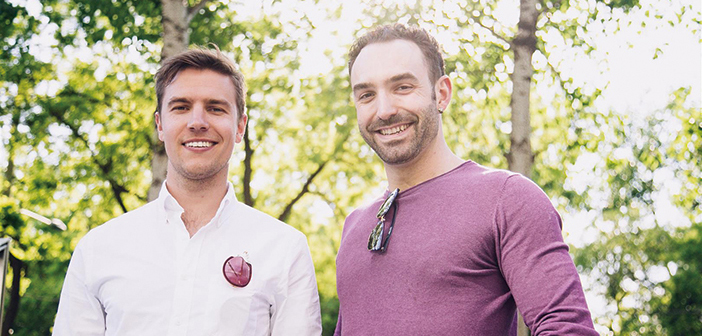Andrew Shirman, co-founder and Chief Giving Officer of Forbes 30 Under 30 fashion company Mantra Eyewear and related nonprofit organization Education in Sight, really loves Yunnan. “It is so culturally rich, and such a bottomless well of inspiration,” says Shirman. From the colorful traditional clothing of minority cultures in Dali to the mind-bogglingly diverse natural geography of rice terraces, snowy mountains, and azure lakes, these inspirations are clearly shown in the innovative frame designs manufactured by his nonprofit.
Both Mantra and Education in Sight were founded by the American duo of Sam Waldo and Shirman. The company’s motto, or mantra if you will, is simple: for every pair of stylish sunglasses you buy, an eye exam is given and another prescription pair of glasses is donated to a child who needs them in Yunnan. This lofty goal has resulted in thousands of rural Chinese students being able to more confidently participate in class. But these stylish sunglasses didn’t precede their charitable drive towards helping these students. Here is the story of their journey from discovering a need in rural Yunnan, and how through their business acumen they were able to develop it into a successful enterprise.
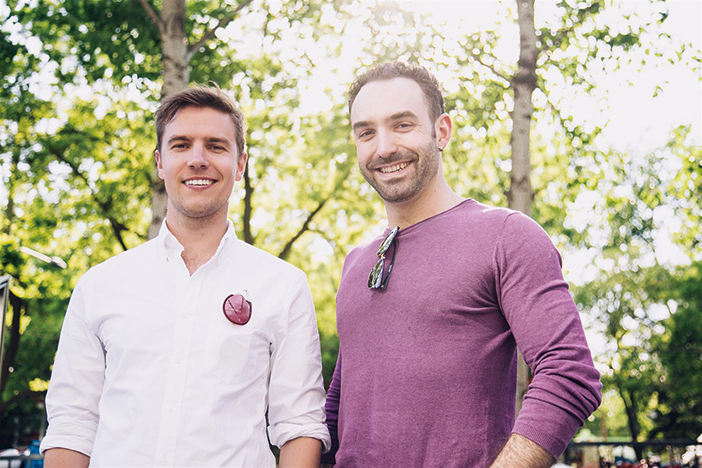
Shirman first came to China in high school during his senior year, and it was his first trip to Asia, which contrasted greatly with his native Illinois. “I went to China and it just blew my mind. In Illinois, you point to a direction and I’ll tell you everything you’re gonna see for a hundred miles, but (in China) every time we turned a corner there was something new that I would want to wrap my head around.”
An obsession with understanding the culture, as many of us can relate to, sent him to live abroad in 2010 for two years in Yunnan as part of the Teach for China program. Along with 29 fellow Americans, Shirman volunteered his time to teach textbook and examination focused lessons to give his rural students a leg up on gaokao testing and eventually university placement.
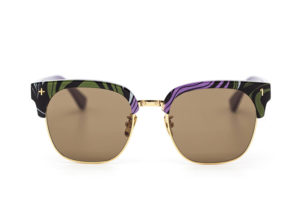 At the beginning of this teaching abroad experience, something bothered Shirman right away. “I noticed the eyesight problems my kids had within the first two weeks of class, it was just super apparent.” He estimates over 20 percent of the class could not see the board clearly. Because of this, students’ grades would drop, and out of frustration or boredom, they would act out and misbehave. Dropout rates were sometimes high.
At the beginning of this teaching abroad experience, something bothered Shirman right away. “I noticed the eyesight problems my kids had within the first two weeks of class, it was just super apparent.” He estimates over 20 percent of the class could not see the board clearly. Because of this, students’ grades would drop, and out of frustration or boredom, they would act out and misbehave. Dropout rates were sometimes high.
“In my second year, I really wanted to do something about this,“ Shirman explained, “It’s not like we have to get these kids surgery, they just needed glasses.” So with the help of his friend and business partner Sam Waldo, the pair raised over USD 3,000 and teamed up with a local optometrist who agreed to assess the students. 1,644 eye exams later, 331 pairs of glasses were delivered to students in 2012, at the end of Andrew’s stint in Yunnan.
Even after returning to work in the US, Shirman still wanted to help those students that left such an impact on his life. So after working a fulltime day job and organizing Education in Sight at night for two years, he moved back to Beijing for good in 2014 and has been here ever since.
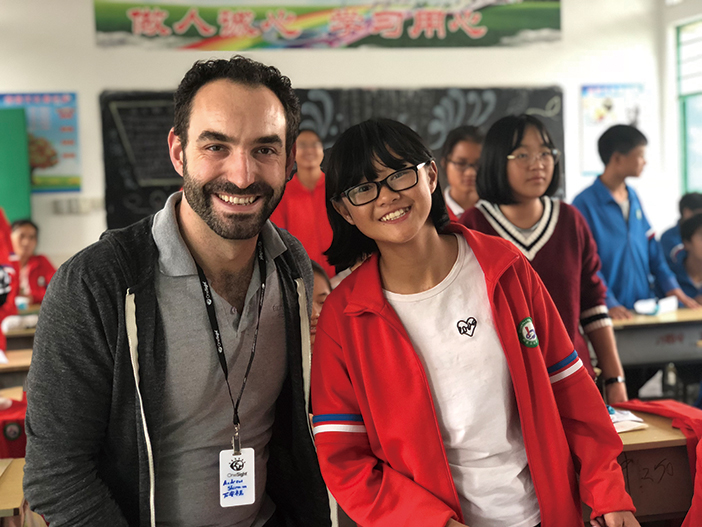
Initially upon returning to China, there were some funding setbacks. A concert organizing company based in Chengdu was looking for a charitable project to endorse, so Andrew and Sam’s mutual friend had made an introduction to the CFO. The Chengdu company stated they wanted to make a USD 50,000 donation and they wanted to share Education in Sight as their charity partners at all of their concerts. But as time passed and the promised money still hadn’t been donated, Sam and Andrew started producing marketing material and the needed eyewear themselves hoping to soon procure the fifty grand. Suddenly and shockingly, Andrew was informed via text message from an underling at the concert organizing company that the actual funding would not be given. “I’ve never been angrier in all of my life,” said Shirman. Prior to dropping out of the deal, they had already filmed sentimental footage in schools and used the materials, cynically, to present themselves as charitable when they actually contributed nothing. Luckily, the setback was short and they were able to raise the money needed through charitable donations from friends and family. A lesson was learned.
The idea of Mantra, based on similar philosophies of company’s like Tom’s Shoes, started nameless. Originally it was called “Metropolis,” but later they decided it was hard to pronounce and translate for native Mandarin speakers. A new company and product line name had to be created. “We were in Shangri-La visiting schools in October, and it was cold, but we left the hotel and decided that we couldn’t come back until we came up with a name for our business. We had a constraint because of the M related materials and marketing, and came up with Mantra.”
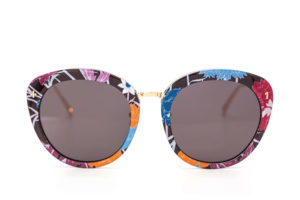 With a successful business model, hard-learned lessons, and an achievable charitable goal coalesced. To date, Mantra and Education in Sight have helped thousands of children. “We are in the middle of implementation for this semester, so not counting this semester, we are at 210,000 eye exams and almost 30,000 pairs of eyeglasses. You gotta go big in China.”
With a successful business model, hard-learned lessons, and an achievable charitable goal coalesced. To date, Mantra and Education in Sight have helped thousands of children. “We are in the middle of implementation for this semester, so not counting this semester, we are at 210,000 eye exams and almost 30,000 pairs of eyeglasses. You gotta go big in China.”
If you are interested in learning more about Mantra Eyewear or maybe picking up a pair for yourself or someone you know, check out their website at findyourmantra.com, or follow their official WeChat account (WeChat ID: findyourmantra).
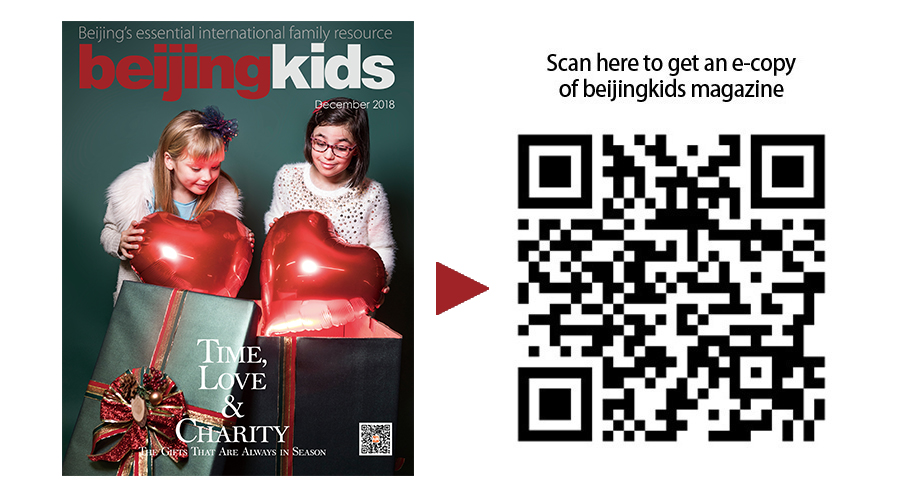
This article first appeared in the beijingkids December 2018 Charity and Goodwill issue.
Photos: Courtesy of Sam Waldo and Andrew Shirman

